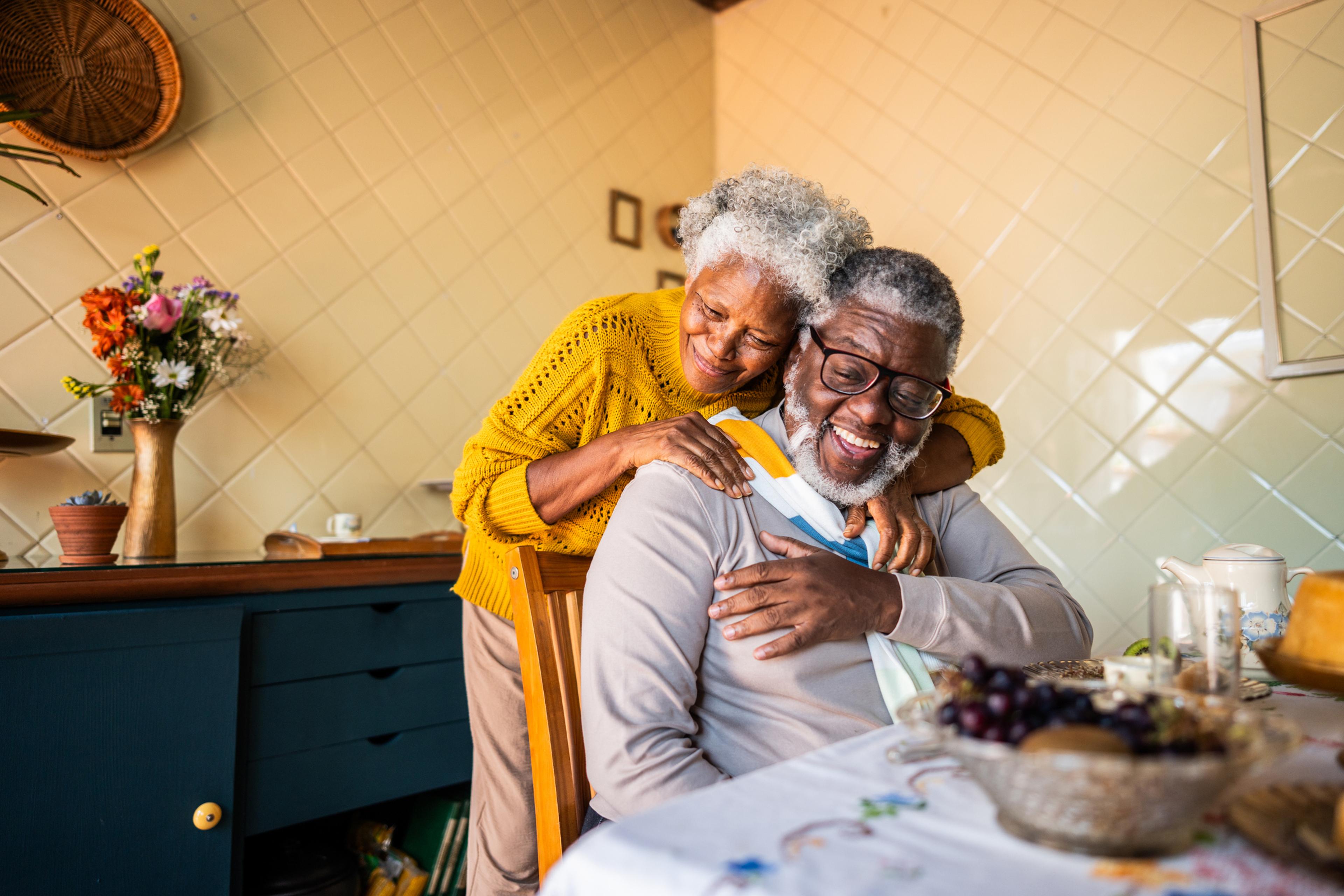What Are the Benefits of Hugging?

Amya Saffore
| 3 min read

You may have heard the saying, “an apple a day keeps the doctor away.” However, recent studies suggest regularly receiving a hug may possess similar healing properties.
Regular physical touch offers more than comfort. Research from institutions such as the National Institutes of Health (NIH) highlights how hugging can have a significant impact on mental and physical health. From reducing anxiety to strengthening relationships and helping the immune system, this physical act of connection is more powerful than many people realize.
What happens in your body when you hug
When you hug someone or vice versa, the body responds by releasing oxytocin, often called the “love hormone.” This natural chemical lowers the stress hormone cortisol, reduces blood pressure and triggers a sense of calm.
According to an NIH study, self-soothing touch such as hugging and massages can:
- Reduce heart rate and stress levels
- Ease pain perception
- Improve emotional regulation
Even brief moments of touch can activate the body’s parasympathetic nervous system, which helps the body rest and counters stress and anxiety responses.
Physical health benefits of hugging
A growing body of research demonstrates the direct impact of hugging on physical health. When we hug, oxytocin surges and cortisol drop, supporting:
- Lower blood pressure and heart rate
- Reduced inflammation and physical pain
- Decreased cortisol while improving stress recovery
A study from the Cleveland Clinic found women in romantic relationships who received hugs experienced significantly reduced stress levels — suggesting touch can be a uniquely calming force, especially in close relationships.
Other forms of touch, such as massages, have shown similar outcomes. A randomized NIH trial on self-soothing and massage reported lower stress responses and improved emotional comfort in participants who received regular tactile therapy.
Can hugs benefit my mental health?
Anxiety is often triggered by real or perceived stress, activating the body’s “fight or flight” response. When this becomes chronic, it can lead to long-term physical and mental strain. Hugging — through its ability to release oxytocin and slow the heart — helps regulate this response.
According to the NIH’s “A Calming Hug” study, hugging and touch-based interactions serve as non-pharmacological tools for managing anxiety. The study tested haptic devices designed to simulate the sensation of a hug and found they reduced pre-test anxiety in students compared to meditation.
Hugging has also been shown to:
- Boost mood
- Provides emotional reassurance during heightened periods of stress
These effects are due in part to the activation of nerve fiber’s skin response to pleasant touch that creates feelings of safety and calmness.
What are the social benefits of hugging?
Hugs may also strengthen social and relational bonds. A study by the NIH of 404 adults found receiving a hug on days with interpersonal conflict helped buffer negative mood responses. Specifically:
- Positive feelings dropped less than usual after the conflict
- Negative feelings didn’t increase as much
- Participants felt more emotionally secure
Further research from Harvard Health confirms couples who engage in regular, nonsexual physical affection — including hugging, hand-holding or cuddling — report greater relationship satisfaction. The review notes “higher levels of routine affection were linked with greater satisfaction in one’s relationship, and making an effort to engage in touch was beneficial because partners recognized the effort.”
Can hugging help you avoid getting sick?
Hugging may even contribute to a stronger immune system. In a study published on PubMed, 404 healthy adults were exposed to a common cold virus. Researchers tracked their social support and hug frequency before exposure to the virus. They found:
- People with higher perceived social support were less likely to get sick
- Frequent hugging explained 32% of that protective effect
- Those who did get sick had milder symptoms
This “stress-buffering” effect shows social support — primarily through physical touch — can help regulate immune function and reduce the impact of illness.
Image: Getty Images





